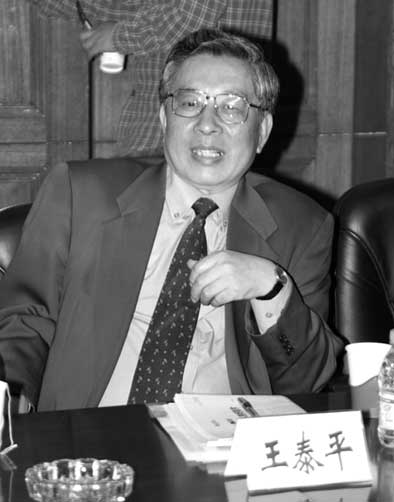By Wang Taiping
|

|
|
Wang Taiping is a former Chinese consul general in Osaka, Japan. |
During the 22 years I worked in Japan, I felt that I loved my homeland more when I was far from home. I have watched our country achieve tremendous economic growth in recent years.
I had worked as a correspondent in Japan since 1969, a time when China had not yet established diplomatic relations with Japan, and China was still mired in the chaos of the Cultural Revolution (1966-1976) that brought the national economy to the brink of collapse.
In 1964, Japan was basking in the joy of hosting the Olympics, and was busy adding highways and Shinkansen bullet trains to its transport network. The market was filled with a wide range of goods, from refrigerators to washing machines. In 1970, Osaka held World Expo, an event that became a remarkable symbol of the economic power that Japan was so ardently pursuing.
In terms of scale and total volume, China's economy was dwarfed by Japan's in the 1970s. In Japan, I was shocked by the fact that China stood in such a stark contrast to its neighbor. I couldn't help wondering what socialism meant, and when China would start to catch up with Japan.
I remembered that in a discussion about my application to join the Communist Party, some comrades criticized me for buying a black-and-white TV from Japan, because capitalism was considered as antithetical to socialism. Yet the truth was that my tiny dormitory was regularly packed with a crowd who came to watch the TV as it was such a luxury at that time.
I began to see a different China as the reform and opening-up was launched. Chinese people started to embrace new ideas. In 1984 my salary was increased, so whenever I took a vacation back to China, I brought home a dozen or so boxes full of groceries and sundry necessities that were hard to get back in China.
During the late 1980s, there was a great surge in the economy, and Chinese textile products flowed into the Japanese market. Yet they were only seen in the gewgaw shops, because they were largely cheap and of poor quality.
The situation has evolved since the 1990s, with Chinese products managing to establish a presence in Japan's finest stores, such as Takashimaya and Mitsukoshi.
It has not been easy to secure a foothold in the Japanese market – Japanese customers are very sophisticated and prone to find fault with imported goods. The success of Chinese products lies in low price and fine quality. The same products manufactured in China are much cheaper than in Japan.
China's booming economy has brought its GDP closer to Japan's, from only 1/8 of the size in the 1980s to 1/4 in the late 1990s.
Ever since the implementation of the reform and opening-up policy, China's development has attracted considerable attention from Japan. Now, over the last two decades, China's rise has changed the map of the Asian economy.
Many Japanese felt anxious about China's rise and their own nation's falling status. Not a few local companies complained about the steady influx of Chinese products that seemed to nibble away at their market shares. Others thought China's development was a boon for a faltering Japanese economy that had been stagnating for almost ten years, as China gradually replaced America to become Japan's largest trade partner in 2007.
Approximately 30,000 Japanese companies have invested in China and are reaping the consequent profits, while in recent years Japan has opened its doors to Chinese tourists. 30 years ago, some stores in Tokyo carried signs at their entrances bearing the insulting words: "No Chinese"; today they hire Chinese-speaking clerks and allow transactions using Chinese bank cards.
Having seen China gaining influence in international affairs, Japan has come to realize that this may not be such a bad thing and seems now to embrace the change. The fate of the Japanese economy now hinges not just on America, but also on China's economic health.
China is closing the economic gap with Japan, long Asia's dominant economic power, but Japan's significant lead in economic maturity, science and technology, environmental protection, living standards, and national education, is what we must aspire to and seek to catch up with.
(China.org.cn translated by He Shan, December 10, 2008)